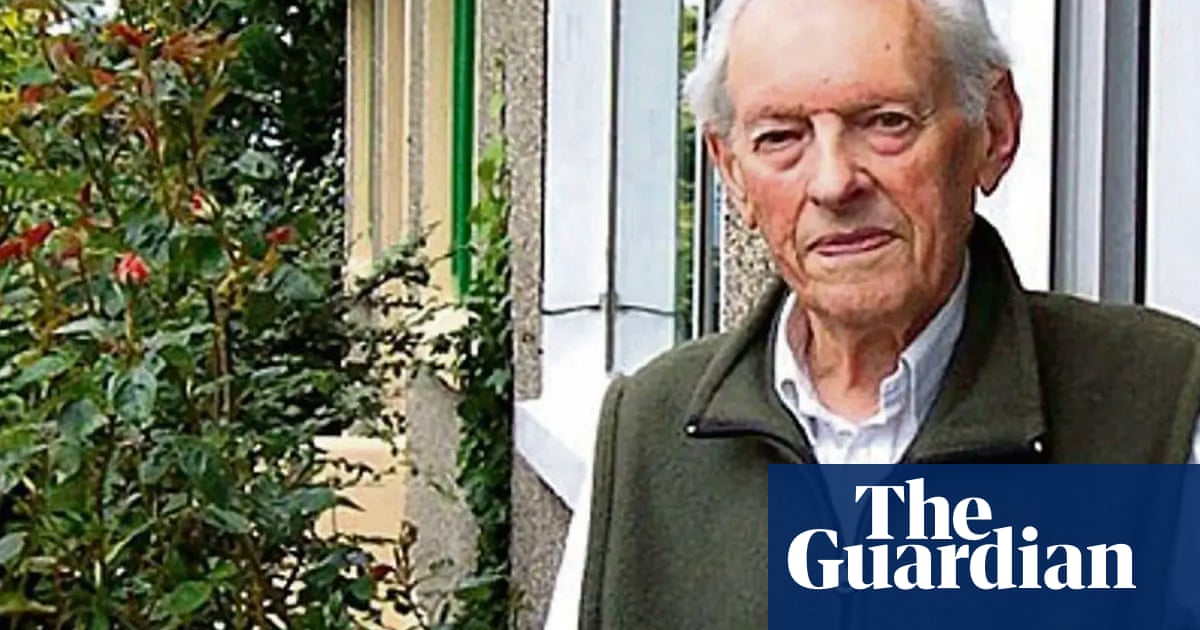
There was never any mystery about the fact that Louis Feutren, a French teacher at St Conleth’s school in south Dublin, was a Nazi collaborator.
He had a taste for violent punishments and bizarre humiliations that terrorised pupils. He liked to reminisce about the second world war, when he had joined a Breton nationalist group that fought on the side of Germany. And he showed pictures of himself in uniform.
To have a staff member who was a known Nazi collaborator and fugitive from French justice was accepted at St Conleth’s, which employed Feutren from 1957 until his retirement in 1985. He remained respected and feted as an educator until his death in 2009.
Now, however, former pupils who endured and witnessed assaults by Feutren have demanded an apology from the school’s board of management.
Uki Goñi, a writer who attended St Conleth’s between 1968 and 1971, launched the campaign to shine a light on the teacher and the culture that excused his history and behaviour. “I learned the first day I was there that he was a Nazi. It was just normalised,” he said on Tuesday.
In a letter to the board, Goñi, a journalist who writes for the Guardian and has written books about Nazi “ratlines” to Latin America, asked board members to apologise for the actions of their predecessors. “We cannot be judged for the behaviour of those who came before us, but that doesn’t absolve us from distancing ourselves from that past today,” he wrote in the letter, which included testimony from other former pupils.
The board was due to discuss his request at a meeting scheduled for Tuesday, said Goñi. The school did not respond to a request for comment.
Feutren was a member of the Breton movement Bezen Perrot, which collaborated with Nazis during the occupation of France in hope of establishing an independent Breton state. The unit wore SS uniforms and guarded an interrogation centre at Rennes. Feutren was a junior officer with the rank of Oberscharführer. After the war the entire unit was sentenced to death for crimes against Jews and resistance fighters, said Goñi.
Feutren escaped to Wales and then Ireland, where he studied at the University of Galway before becoming a French teacher at St Conleth’s, a prestigious school in Ballsbridge, south Dublin.
“They said he wasn’t really a Nazi but a Breton separatist,” said Goñi. “My reaction was, yes, but many Breton separatists didn’t join the SS.”
Staff and students alike learned that the school’s French teacher was passionate about the language but despised France and risked arrest if he returned.
Kieran Owens, who attended the school from 1966 to 1974, said Feutren inspired respectful fear. “No one would consider crossing Mr Freuten. He was a volcano ready to erupt at any moment. If there was any sort of transgression he would be very, very, very swift and violent. I witnessed him bashing a guy; the guy flew across the room.”
His teaching methods were literally hands-on. “If he was attempting to get you to pronounce a word he would use his hand to mould your jaw into whatever position it required to get it right,” said Owens.
Nicholas Robinson studied under Feutren in the 1980s when he was frailer – and corporal punishment was illegal – but the teacher still frightened pupils. “To correct pronunciation he would put a ruler on the back of your tongue and you had to make it vibrate the correct way.”
Mark Collins, another pupil in the 1980s, said age did not temper Feutren’s violent impulses: “He’d twist your ear or smack you.” Collins recalled being told to stand in front of the class and remove any item of clothing he could not name in French. “So you have a 13-year-old boy thinking ‘am I going to be stripped naked here?’”
“We were used to a straightforward forms of punishment but with him it was just sinister and strange. He’d make you stand in a line with a piece of chalk in your mouth and make sure your lips didn’t touch the chalk. Really weird behaviour.”
The National Library of Wales was criticised in 2011 for accepting £300,000, along with papers and tapes, bequeathed by Feutren.












